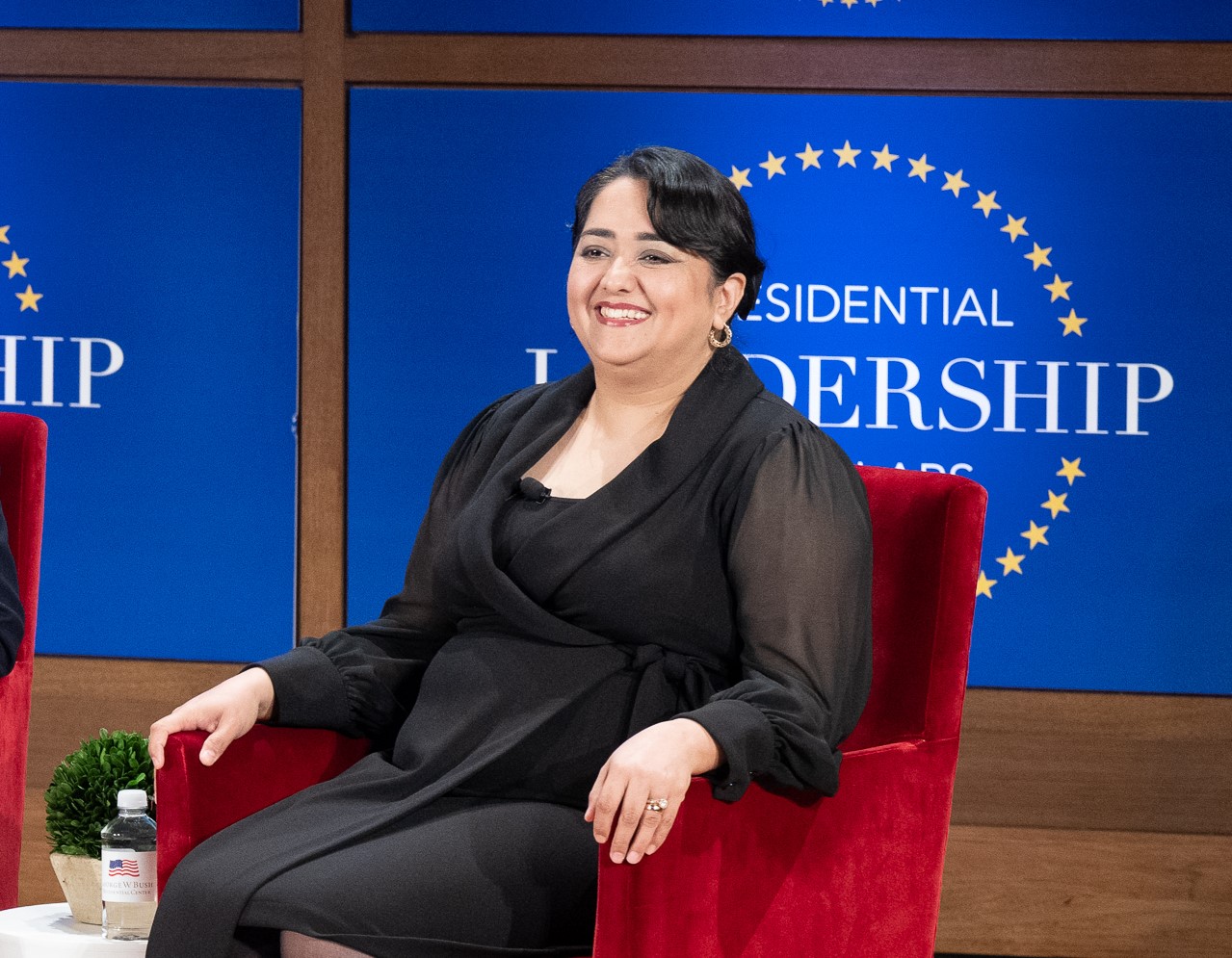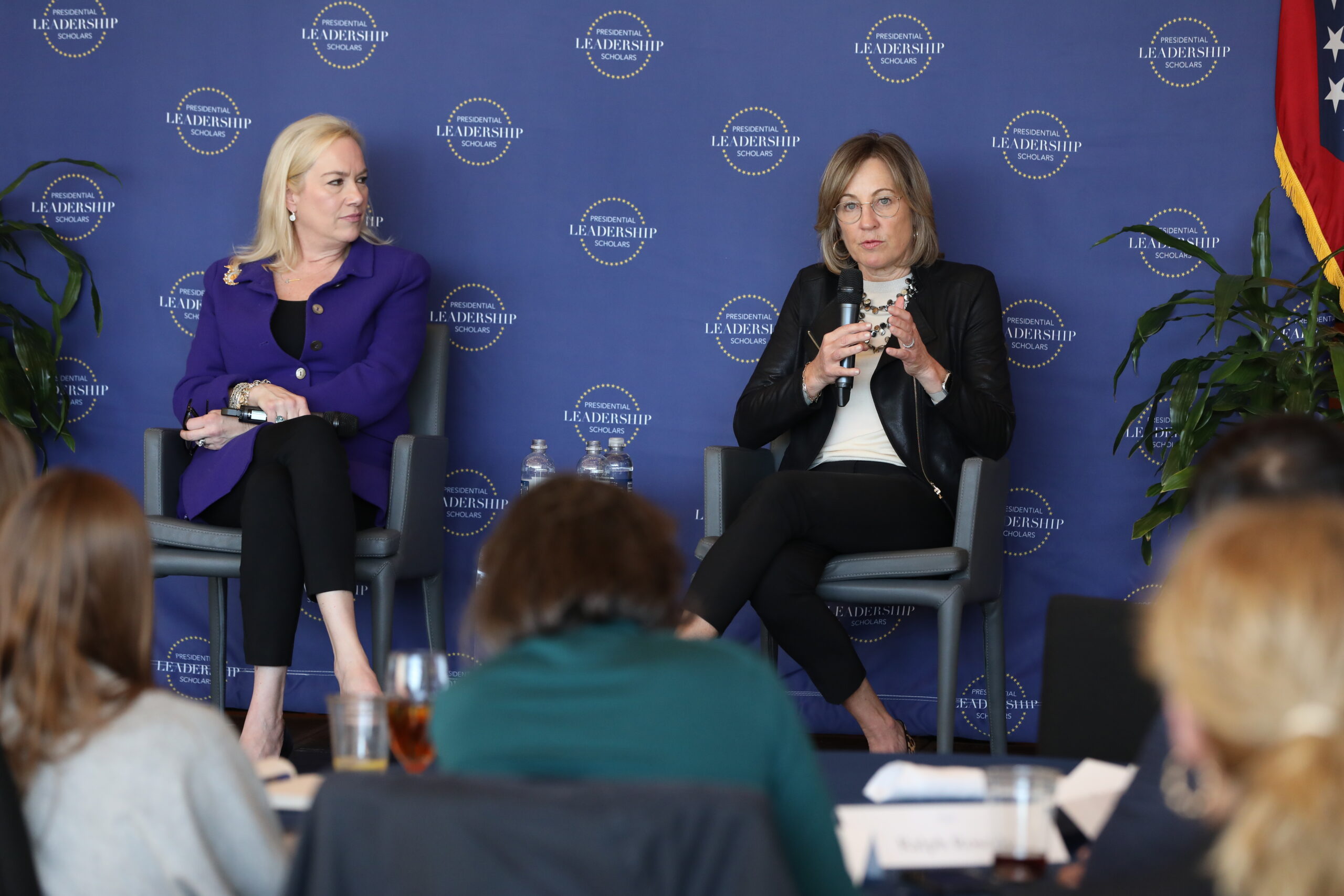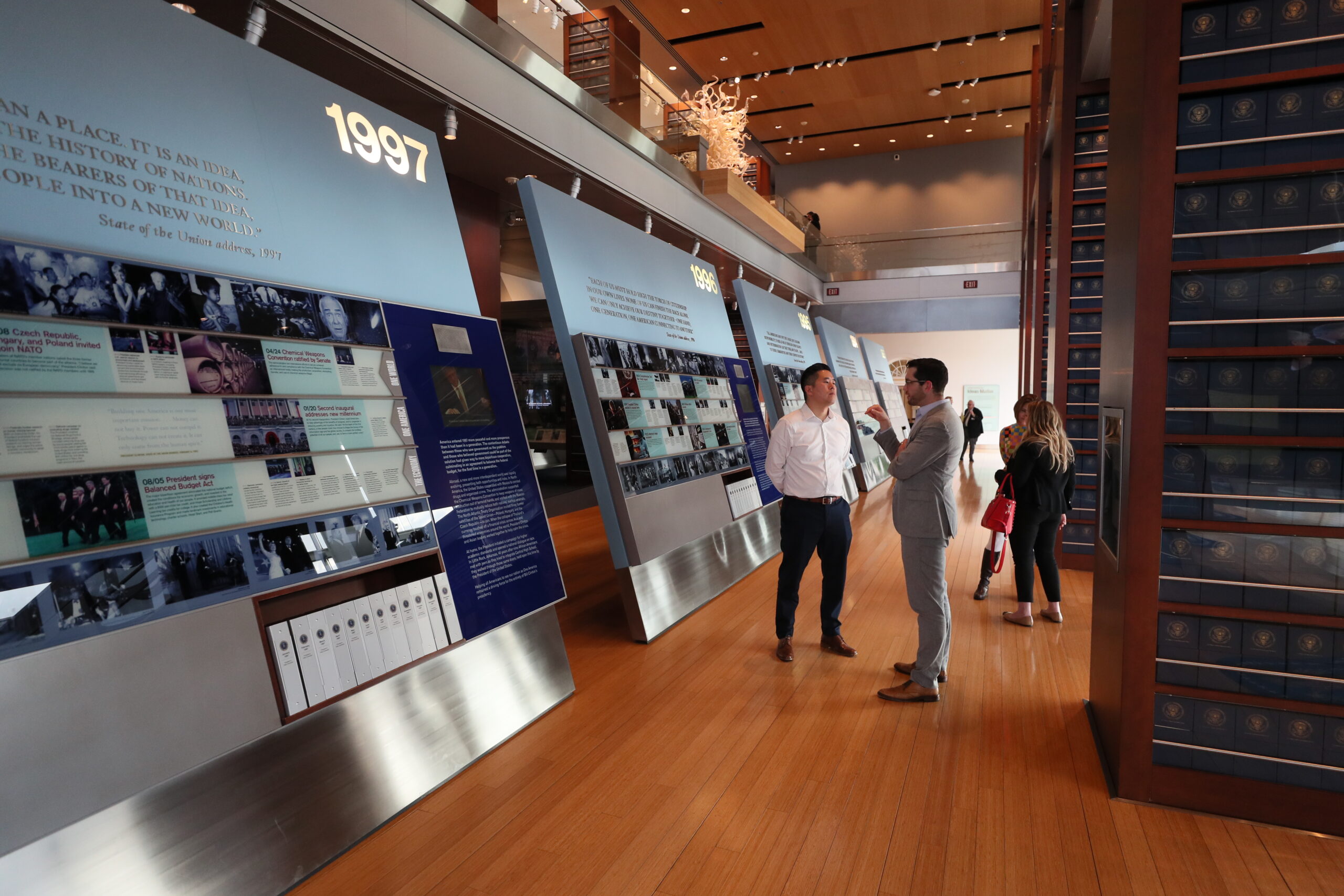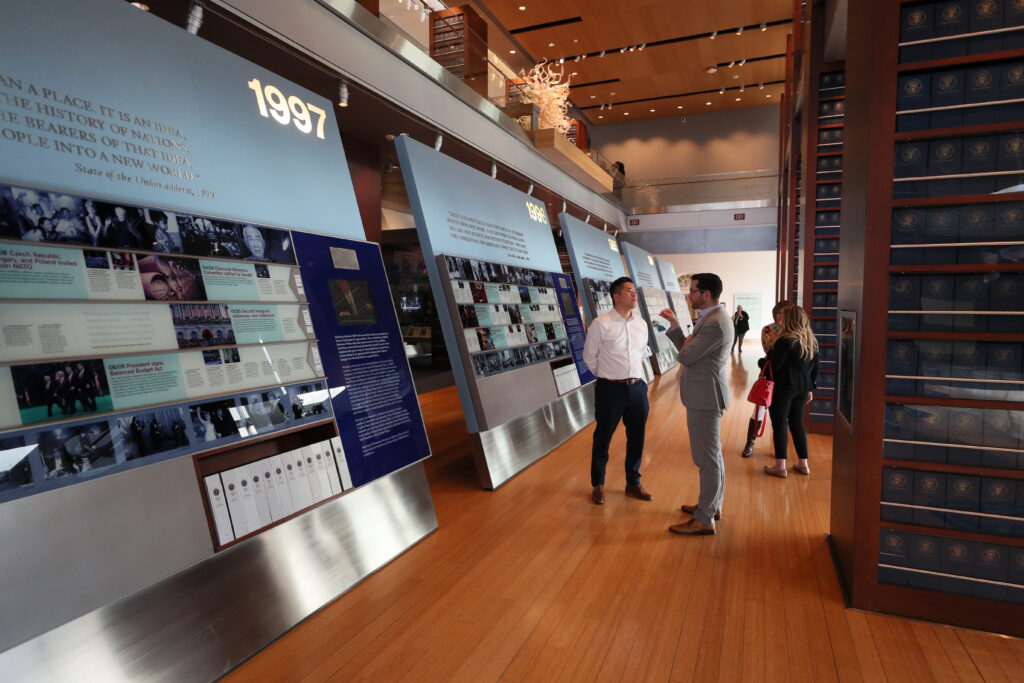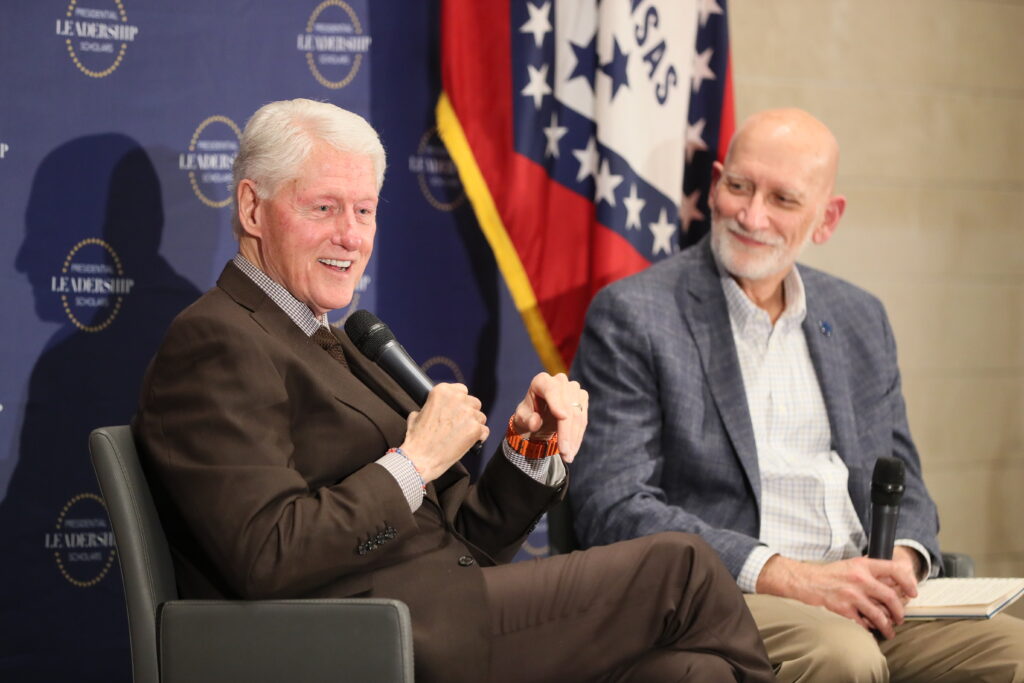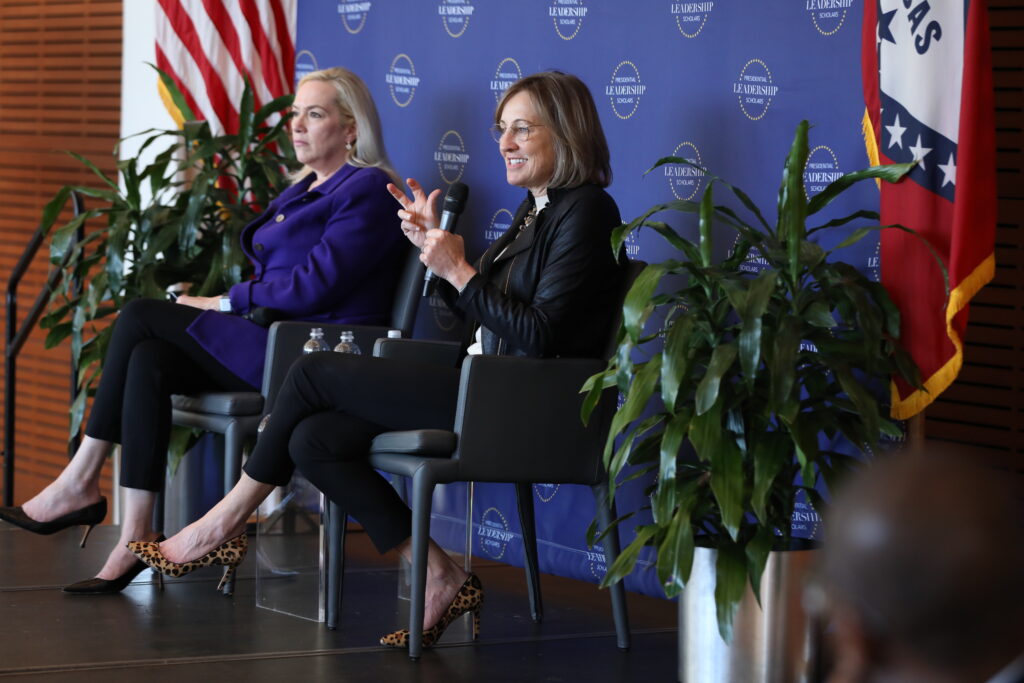Mozhgan Wafiq Alokozai, 2022 Presidential Leadership Scholar and Founder and CEO of Eagle Online Academy, discusses a vital lesson she learned during her time the program and shares what fuels her unwavering service to women and girls.
Please tell us a little bit about yourself and your personal leadership project.
My name is Mozhgan Wafiq Alokozai, and I’m the Founder and CEO of Eagle Online Academy. I established the academy with the core mission to support women and girls in crisis.
Please give us an update on what you have been working on since completing the Presidential Leadership Scholars program.
Eagle Online Academy is dedicated to serving women and girls in crisis. Currently, we are supporting two primary populations: Afghan and Ukrainian, by providing skills training, English language classes, mentorship, and mental health support through our Courage Circle programs. Over the past four years, we have served more than 1,900 women and girls.
Which lessons learned during the Presidential Leadership Scholars program have stayed with you the most, and how have you put those lessons into action?
As a new immigrant to the United States since 2015, each session has been a learning journey for me. I’ve gained insights into the U.S. political system, community structures, and history. The opportunity to network with nonprofit organizations and experts has significantly deepened my understanding of the sector. The most vital lesson I’ve learned from the program is the power of bringing a diverse group of individuals together under one umbrella. The friendships and bonds formed among everyone could serve as an excellent model for implementation in various countries. Such programs substantially promote unity and build healthier communities.
Looking ahead, we plan to introduce a similar model of leadership program for our students. This program will aim to bring together individuals from diverse backgrounds, with a focus on networking, knowledge exchange, and community building, all designed to foster a healthier world for everyone.
Can you discuss the power of education and how you have seen it change the lives of women and girls through Eagle Online Academy?
Education stands as the singular tool capable of transforming the lives of women and girls from situations of forced marriages, dependency, and violence to states of independence and self-determination. Eagle Online Academy has made a significant impact, serving over 1,900 Afghan and Ukrainian women, both within their countries and among the refugee populations. We have numerous transformative stories to share.
One such story is of Aqila from Afghanistan, a mother of four who became a refugee in Pakistan. Pressured by her brother-in-law into a second marriage, Aqila sought a different path. Through her participation in our Dari and Pashto tutoring and English classes, she began freelancing, teaching Afghan diaspora children in the USA and Canada. Now, she earns enough to support her children and make her own life decisions, free from her in-laws’ control. Education empowered Aqila to live a life aligned with her values and choices.
Similarly, our English language and skills training empowered Yuliia, who moved back to Ukraine from Virginia to contribute to her country’s reconstruction. She believes that Eagle Online Academy’s commitment to providing free education to Ukrainian women creates equal opportunities for those who otherwise couldn’t afford it.
These stories underscore the transformative power of education in providing women and girls the agency to shape their lives and futures.
Women and girls around the world are disproportionately impacted by war, corruption, and kleptocracy, and we are currently seeing suffering and inequality for women amplified in many countries. How do you stay hopeful and motivated to do your work in such difficult climates?
Believing in the power of individual change fuels my drive. Every individual we assist marks a step toward a better world. The transformation in the life of one woman or girl can ignite a chain reaction, inspiring and empowering others. This conviction that individual change can lead to broader societal evolution motivates me deeply.
To maintain momentum, we concentrate on positive outcomes and celebrate every success, no matter how small. Each woman or girl who attains education, finds independence, or escapes a harmful situation represents a triumph. These victories, big or small, are pivotal and deserve celebration.
I view our efforts as opportunities rather than challenges. This perspective transforms our work from a series of obstacles into chances to make a significant difference in the world. This outlook not only fuels hope and motivation but also brings profound fulfillment. The gratitude expressed by those we help, and the sense of purpose derived from our work, are immensely gratifying.
The inspiring messages from our students and their families powerfully affirm our impact and inspire hope for their futures. A poignant example comes from the mother of Azeeta, a 10th grade student at our online school. She shared that following the Taliban’s ban on girls’ education beyond grade six in Afghanistan, she felt so despondent that she considered suicide. Joining our school changed her life, reigniting hope for her future. Stories like this underscore the importance of our work and energize us to continue making a difference.
